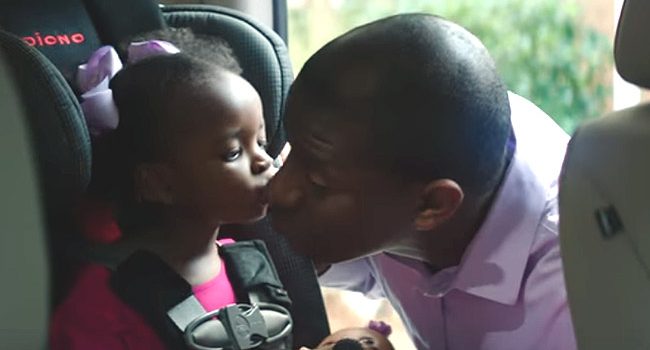It’s not easy keeping up with the latest in education policy. I have to wade through lots of detritus in my inbox. And we haven’t even begun to talk about social media, to which, like other previously sentient beings, I have become addicted. I may have to check myself into one of China’s digital detox camps soon.
https://youtu.be/aBBfAcBkLdE
But I’m compelled to abide by that maxim, attributed, variously, to Sun Tzu, Machiavelli, and Michael Corleone in “The Godfather”— the one about keeping your friends close, and your enemies closer.
As a result, I field frequent emails from the Foundation for Excellence in Education, informally known as ExcelinEd. The subject lines—“This Week in #SchoolChoice,” and “Charter Schools: Good News for Students!”—make me nauseous. Founded in 2009 by Jeb Bush, determined to continue Florida’s “revolution in education” following his tenure as governor, ExcelinEd set forth to build “an American education system that equips every child to achieve his or her God-given potential.”
Apparently, a prerequisite for achieving one’s God-given potential is the capacity to endure an endless battery of computer-administered state assessments—with no time to recover from ill effects. Parents in Florida have had to mobilize to fight for recess. The latest update on the group’s Facebook page notes that a mandate ensuring twenty consecutive minutes daily of unstructured free play beyond physical education had been passed by the state legislature, pending approval of the budget by Governor Rick Scott. “Playing IS learning, and #recessmatters!” the report concluded, with thanks to the policymakers who stood beside the parents in righting a wrong.
So you can imagine my shock when I read “Learning through play,” the subject line of a recent email from Andrew Gillum. The Tallahassee mayor is the first Democrat to announce his candidacy for governor in Florida’s 2018 primary. At 37, he’s something of a wunderkind, and as Politico noted, he faces a crowded field. But his enlightened message, written on paternity leave, no less, was tantalizing:
I’m fortunate enough to be on paternity leave while we wait for the imminent arrival of our third child—something I will make possible for every parent in Florida when I’m Governor. But that’s an email for another day.
Today, I want to talk to you about early childhood education, and what our goals are here in Florida. While we’ve been soaking up as much time as possible with our almost three-year-old twins, Caroline and Jackson, before their brother arrives, I’ve been thinking a lot about the needs of every young child in the state—and how we can ensure those needs are met.
Right now, we begin most of our public education at five years old—but research tells us that 90% of a child’s brain development happens from ages zero to five. I firmly believe we need to invest more in those earliest years through research-based programs that help our children learn, grow and thrive.
When we talk about wanting to start education earlier, we aren’t talking about sitting two-year- olds down and getting them to bubble in a multiple choice test. Our goal for earlier childhood education is one that is focused on learning through play—what research tells us is most effective. We’re talking about coloring, learning to share, building blocks, and story time.
Gillum gets an “A” on developmentally appropriate practice, and his narrative is compelling. Born in Miami to a mother who drove a school bus and a father who worked in construction, he was the first in his family to graduate college. The impact of the criminal justice system on African-American men is not an abstraction for him: all of his older brothers have records. Uncertain that he and his wife would have children, he seems to take great pleasure in their presence and is acutely aware of the differences between their childhood and his own.
“We’d get up at 4:00, 4:30 in the morning and make sure that my mom could be on time to driving the bus,” he recounts in his campaign video. “We would ride the bus for two or so hours before we would transfer and get on our bus for school.” Gillum remembers watching her maneuver without power steering, a struggle that left her with injuries she still has today.
Gillum is somewhat of a cipher, and he has yet to flesh out the details of a credible policy agenda. He talks of his time as mayor, and his affinity for disruptive technologies. He tells us of leaning in— a nod to Sheryl Sandburg—and of the entrepreneurial ecosystem he created, in which anyone with a vision and a dream can get it done.
Education, he believes, is a bulwark against intergenerational poverty, his language about “deciding for yourself whether or not you’re going to have a different future” evoking a sense of personal responsibility. I wonder what he thinks about the gyrations of the global economy, growing income inequality, lack of social mobility, racism and other structural barriers to that future.
Still, Gillum’s conception of education in the early years is a welcome antidote to ExcelinEd’s claptrap and policymakers who are clueless about how children develop and learn. Bring it on home.


You must look up Dr. Michael J. Hynes-Play and Children are more than test scores. He is the Superintendent of Patchogue-Medford schools on Long Island. He has given TED talks regarding the importance of play in schools among other topics.